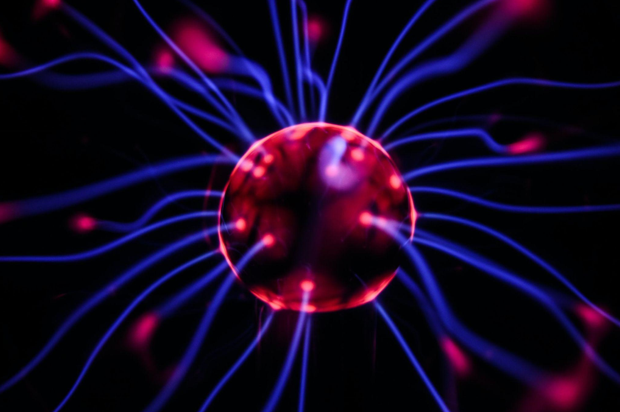Curious about how to improve concentration? You're in the right place. In today's post, we'll tell you all about our favorite brain optimization hacks for peak performance. Don't miss this!
How to Improve Concentration: Brain Optimization Hacks for Peak Performance
Do you ever find yourself reading the same paragraph over and over and over again? You're not absorbing the information or you're distracted by something else, so you keep returning to the same text until you can really absorb what it says. This is just one example of struggling to concentrate and it's something that happens to all of us at one point or another.
For some of us, it becomes particularly prevalent and can even make it difficult to complete everyday tasks in a reasonable amount of time.
Symptoms of being unable to concentrate
Sometimes, the inability to concentrate is very obvious. But it's not always entirely evident that you're having difficulty concentrating.
Here are some symptoms that can point to difficulty concentrating:
- Struggling to remember things that happened not long ago
- Trouble sitting still
- Difficulty thinking clearly
- Frequently misplacing things or struggling to remember where they are
- Lacking focus
- Making careless mistakes
- Struggling to perform involved tasks
- Struggling to find the energy (physical or mental) to concentrate
Additionally, you might notice there are certain times of day or certain activities wherein your inability to concentrate is more obvious.
What causes difficulty concentrating?
As we mentioned, virtually everyone will experience difficulty concentrating one one point or another. That being said, there are certain illnesses or conditions that can make it more common.
These include:
- Alcoholism
- Epilepsy
- Insomnia
- Attention deficit hyperactivity disorder (ADHD)
- Chronic fatigue syndrome
- Concussion
- Restless leg syndrome
- Cushing syndrome
- Dementia
- Mental disorders, including schizophrenia and major depressive disorder
There are also several lifestyle factors that play a big role in your ability to concentrate. Most notably, a lack of sleep, hunger, anxiety, and excessive stress. And this is where our brain optimization hacks for how to improve concentration come in!
How to Improve Concentration with Brain Optimization Hacks
There isn't always something that can be done about many of the causes of difficulty concentrating. But when it comes to excess stress, there are a number of tools and strategies you can use to manage your stress levels. Additionally, you can implement practices that help you become more resilient to stress. That means even if you can't limit or control the things that cause you stress, you're better able to manage the stress.
How to improve concentration and overall brain health
So, to train your brain to better handle whatever life throws at you, let's dig into these brain optimization hacks for how to improve concentration and your overall brain health.
Pair mental and physical activity together
Rather than devoting time just to mental activity or just to physical activity, try grouping them together. When you call on as many areas of the brain as possible to participate, this can in turn improve your focus, decision-making ability, and coordination.
Some examples include reading while you walk on the treadmill or reciting poetry or something else you know by heart while you jump rope.
Adopt a growth mindset
What does it mean to adopt a growth mindset? Essentially, it means shifting your attention and focus to thoughts, behaviors, and actions that promote your mental and physical growth. Additionally, it can also mean things like developing a growth mindset when it comes to your career or your physical health.
As Dr. Linda Wilbrecht, Associate Professor, UC Berkeley explains: “I think that the growth mindset is a very helpful brain hack. The growth mindset emphasizes the possibility of change and growth as opposed to focusing on capacity or ability."
Strategic scheduling
Another helpful strategy for how to improve concentration involves how and when you schedule high-value, top-priority tasks.
For example, if you find your concentration is best in the morning, it makes sense to schedule high-value tasks that may call on more of your mental reserves for this time. That way, you're setting yourself up for success and giving yourself the best chance of being able to focus and concentrate.
This might mean saving something like checking your emails for later in the day when it's not as important that you're able to concentrate. But whatever it is that works for you, schedule your time appropriately and strategically to make the most of your ability to concentrate.
Practice mindfulness
Mindfulness is likely a word you've heard often, but you might not be entirely familiar with what it means.
Here's a helpful definition from Mindful.org:
"Mindfulness is the basic human ability to be fully present, aware of where we are and what we’re doing, and not overly reactive or overwhelmed by what’s going on around us. Mindfulness is a quality that every human being already possesses, it’s not something you have to conjure up, you just have to learn how to access it."
As you can imagine, the ability to practice mindfulness during whatever you're doing can go a long way to improving your concentration.
But keep in mind, mindfulness is not something you'll learn or master overnight. It's an ongoing practice, but it's one that can pay off in a big way.
There are a number of different ways to improve and practice mindfulness, including with the help of meditation. If meditation is something new to you and you're not sure where to start, visit this post next. It details nine different types of meditation to help you find the one that might be right for you.
How to improve concentration by reducing stress
When it comes to how stress affects the brain, it can happen in a few different ways.
As we explain in this article:
"Interestingly, stress can not only change the structure of certain parts of the brain, but researchers have also discovered it can even cause parts of the brain to shrink.
For example, this study from Stanford University found that stress can actually shrink the neurons in the brain.
Now, before you begin panicking about shrinking your brain from stress, it's worth noting this is usually the result of long-term chronic stress. At the same time, this type of stress is also different from the anxiety many of us feel on a daily basis."
Among the changes it can cause in the brain include affecting its ability to concentrate. Stress can cause your prefrontal cortex to shrink, and this is the area responsible not only for concentration, but also decision-making, judgment, and social interactions.
So, what can be done to reduce or manage stress and in turn, boost your ability to concentrate?
Here are some ideas to start you off:
- Increasing (or starting) your amount of physical activity
- Including more magnesium-rich foods in your diet (this mineral helps promote a sense of calm but it is often depleted by stress)
- Practicing yoga, meditation, and mindfulness
- Creating a strong support circle with healthy social relationships
- Exploring vagus nerve stimulation
What is vagus nerve stimulation?
Did that last idea catch your eye? Then let's talk more about vagus nerve stimulation! It can have a powerful effect in boosting your mood, helping you become more resilient, managing your stress levels, improving your sleep, and much more.
Stimulating this nerve can be done with invasive procedures, including surgical implantation of a stimulation device. There are also other options, including exposure to cold water, humming, and meditation. But one of the least invasive and most-accessible options is known as tVNS (Transcutaneous Vagus Nerve Stimulation), and it involves simply stimulating the vagus nerve through the ear...all with the help of Xen by Neuvana headphones!
Xen is a patented electronic device that delivers gentle micropulses through headphones directly to the vagus nerve located in your ear. You pair the device wirelessly to your Neuvana app, then you can customize your sessions with your favorite music or sounds. Then, all you need to do is pop your headphones in, turn the device on, and go about your day while you reap the rewards of vagus nerve stimulation...including improving your concentration.
So, if you've been wondering how to improve concentration, it's worth finding out even more about tVNS and what it could do for you. Click here to read more about the science of tVNS as well as the research backing it. Or, click here to shop for Xen products today.





